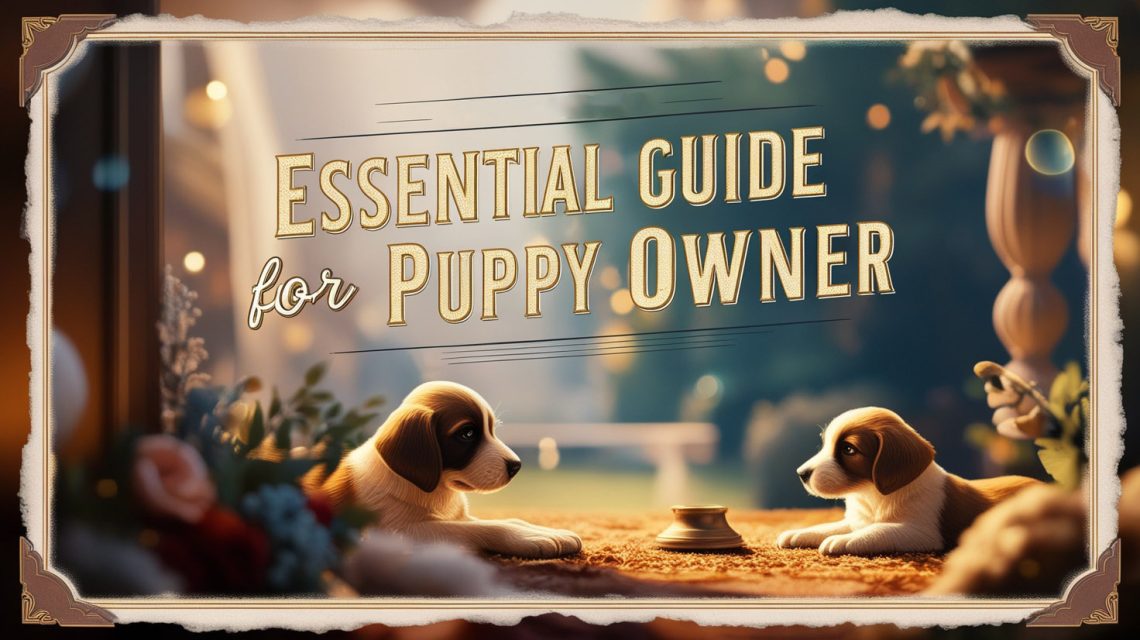The Ultimate Guide for Every Puppy Owner
Welcoming a puppy into your home is an exciting yet challenging journey. As a new puppy owner, understanding their needs, training requirements, and ways to build a loving bond are essential for a happy, healthy relationship. This guide walks you through everything you need to know to raise your furry friend with confidence and love.
Why Becoming a Knowledgeable Puppy Owner is Important
Being a responsible puppy owner isn’t just about love—it’s about knowledge and preparation. Puppies require specialized care, structured training, and a nurturing environment to thrive. Whether it’s understanding their nutritional needs or learning to interpret their behavior, knowing what to expect can make the journey smoother for you and your pup.
Top Tips for Every Puppy Owner
1. Preparing Your Home for a New Puppy
Bringing a puppy home is like preparing for a new baby. Here’s how to puppy-proof your house:
- Secure Hazardous Items: Store cleaning products, electrical cords, and small objects out of reach.
- Create a Safe Space: Designate a cozy corner with a crate or bed for your puppy to retreat to.
- Stock Up on Essentials: Food and water bowls, age-appropriate toys, and a leash are must-haves.
Transitioning smoothly begins with a safe and welcoming environment.
2. Understanding Puppy Behavior
Puppies are curious, playful, and sometimes mischievous. Recognizing their cues helps you respond appropriately.
- Chewing: A natural way to explore their environment, but provide toys to redirect this behavior.
- Barking: Often a sign of excitement, fear, or need for attention. Training can curb excessive barking.
- Tail Wagging: It’s not always happiness—observe the position and speed for clues to their emotions.
Understanding these signals strengthens your bond and prevents misunderstandings.
3. Puppy Nutrition Basics
Proper nutrition sets the foundation for a healthy life.
- Choose Quality Food: Look for veterinarian-recommended brands tailored to your puppy’s breed and size.
- Stick to a Feeding Schedule: Puppies thrive on routine. Divide meals into 3–4 smaller portions daily.
- Avoid Human Foods: Foods like chocolate, onions, and grapes are toxic to dogs.
Good nutrition not only supports growth but also prevents health issues down the road.

4. Training Essentials for Every Puppy Owner
Training is one of the most rewarding aspects of being a puppy owner.
a. Potty Training
- Start with consistent potty breaks, especially after meals and naps.
- Use positive reinforcement to reward successful trips outside.
b. Basic Commands
- Teach commands like “sit,” “stay,” and “come” using treats and praise.
- Keep training sessions short and engaging to hold their attention.
c. Socialization
- Expose your puppy to different people, environments, and other pets.
- Ensure experiences are positive to build confidence.
Training creates a well-mannered and happy companion.
5. Ensuring Your Puppy’s Health
Regular veterinary care is crucial for your puppy’s well-being.
- Vaccinations: Protect against common diseases like parvovirus and distemper.
- Parasite Prevention: Use flea, tick, and worm treatments as recommended by your vet.
- Regular Checkups: Schedule visits to monitor growth and detect potential issues early.
A proactive approach to health keeps your puppy thriving.
6. Building a Bond with Your Puppy
The foundation of a strong relationship is trust and affection.
- Spend Quality Time: Play, cuddle, and train together to strengthen your connection.
- Understand Their Needs: Learn to interpret your puppy’s body language and respond with care.
- Be Patient: Puppies have a lot to learn, and mistakes are part of the process.
Patience and understanding go a long way in forming a lifelong friendship.
Common Challenges for Puppy Owners
Puppy ownership comes with hurdles. Here’s how to overcome them:
a. Dealing with Separation Anxiety
Gradually teach your puppy to be comfortable alone by leaving them for short periods and rewarding calm behavior.
b. Preventing Destructive Behaviors
Redirect chewing or digging to appropriate outlets like toys or designated digging areas.
c. Handling Aggression
Identify triggers and work with a professional trainer if necessary. Positive reinforcement often resolves minor issues.
FAQs for New Puppy Owners
1. How do I know if my puppy is healthy?
A healthy puppy is active, has a shiny coat, clear eyes, and a healthy appetite. Regular vet visits ensure their well-being.
2. When should I start training my puppy?
Start basic training as soon as you bring your puppy home. Early lessons are easier to instill and help form good habits.
3. How can I stop my puppy from biting?
Redirect biting to toys and discourage nipping during play by withdrawing attention briefly when it happens.
4. What vaccinations does my puppy need?
Core vaccines include distemper, parvovirus, rabies, and canine hepatitis. Your vet will recommend a schedule.
5. How often should I groom my puppy?
Brush your puppy’s coat weekly and bathe them every 4–6 weeks or as needed. Breeds with longer coats may require more frequent grooming.
6. What should I do if my puppy is scared?
Provide a calm and safe environment, and never force your puppy into situations they find frightening.


